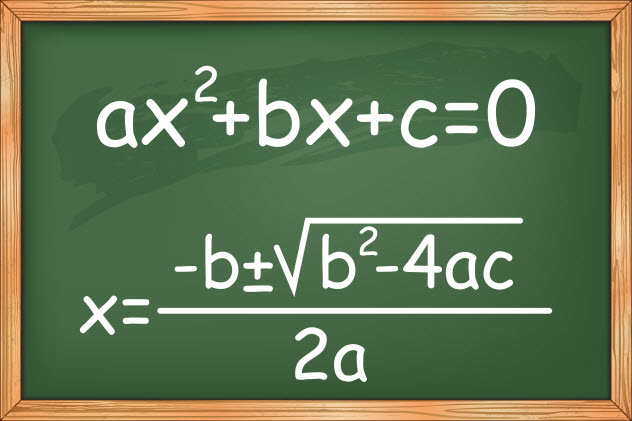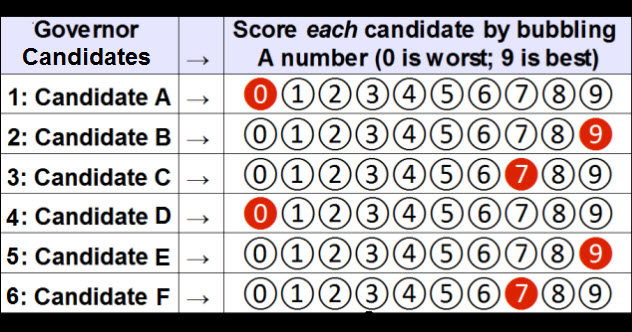 Weird Stuff
Weird Stuff  Weird Stuff
Weird Stuff  Health
Health Ten Confounding New Inventions from the World of Biomedicine
 Creepy
Creepy 10 Death Superstitions That Will Give You the Creeps
 Movies and TV
Movies and TV 10 Movies That Get Elite Jobs Right, According to Experts
 Weird Stuff
Weird Stuff 10 Times Real Laws Were Based on Bizarre Hypotheticals
 Animals
Animals 10 Inspiring Tales of Horses Being Human
 Mysteries
Mysteries Top 10 Haunting Facts About the Ghost Ship MV Alta
 History
History 10 Surprising Stories About the Texas Rangers
 Humans
Humans 10 Philosophers Who Were Driven Mad by Their Own Theories
 Miscellaneous
Miscellaneous 10 Video-Game-Worthy Weapons and Armors from History
 Weird Stuff
Weird Stuff 10 Warning Labels That Exist Because Someone Actually Tried It
 Health
Health Ten Confounding New Inventions from the World of Biomedicine
 Creepy
Creepy 10 Death Superstitions That Will Give You the Creeps
Who's Behind Listverse?

Jamie Frater
Head Editor
Jamie founded Listverse due to an insatiable desire to share fascinating, obscure, and bizarre facts. He has been a guest speaker on numerous national radio and television stations and is a five time published author.
More About Us Movies and TV
Movies and TV 10 Movies That Get Elite Jobs Right, According to Experts
 Weird Stuff
Weird Stuff 10 Times Real Laws Were Based on Bizarre Hypotheticals
 Animals
Animals 10 Inspiring Tales of Horses Being Human
 Mysteries
Mysteries Top 10 Haunting Facts About the Ghost Ship MV Alta
 History
History 10 Surprising Stories About the Texas Rangers
 Humans
Humans 10 Philosophers Who Were Driven Mad by Their Own Theories
 Miscellaneous
Miscellaneous 10 Video-Game-Worthy Weapons and Armors from History
10 Alternatives To Conventional Liberal Democracy
Most people in liberal republics or constitutional monarchies consider the slow march to freedom over tyranny to be a laudable and inevitable historical process. Current alternatives to the democratic system exist, like Islamism or various authoritarian regimes, but they hold little ideological appeal to people outside those societies (and sometimes even to people within them).
Yet there is often a pervasive sense that one’s vote doesn’t really matter and that individuals are powerless to exert influence over the political system as a whole. When people say that democracy is in crisis, it sounds as if there are no alternatives other than repressive autocracy. In reality, there are a number of hypothetical variations on the democratic system that we haven’t fully tried yet.
10 Zapatista Democracy

The revolutionary Zapatistas of Mexico believe in a definition of democracy based on the concept of mandar obediciendo (“lead by obeying”). By encouraging a continual consultation and debate process between the governors and the governed, they try to ensure that the government respects the wishes of the community at large.
They also want legal recognition for traditional indigenous practices of governance (to be carried out autonomously from the state) and a politicization of civil society to a degree usually absent in liberal democracy.
The ultimate authority in Zapatista territories is the political and military leadership called the Comita Clandestino Revolucionario Indigena (“Clandestine Revolutionary Indigenous Committee”). This committee (CCRI) is made up of at least one male and one female representative of each indigenous ethnic group plus mestizos.
However, all CCRI decisions must pass through a consultation process involving over 1,100 Zapatista communities. These communities are represented by assemblies, which involve mandatory attendance except in the case of illness or work obligations.
Since 2003, the CCRI has also relinquished control of many functions to a range of municipal councils and five regional juntas called juntas de buen gobierno (“good government” juntas).
Despite a continued Mexican counterinsurgency campaign, the Zapatistas have governed communities across five regions of the state of Chiapas for over 20 years. Although opponents refer to the Zapatistas as a politically spent force that is becoming irrelevant, supporters note widespread local support and positive results in terms of reducing violence and drug abuse while empowering the role of women in society.
In 2013, they launched La Escuelita (“the Little School”), which seeks to educate visitors on their political and social philosophy.
9 Cosmopolitan Democracy
Some people believe that the fundamentally illiberal and adversarial relationship between nation-states is a point of weakness for democracy within those states. They believe that several factors call for the development of a global civil society to supersede state-based democracies, which are often weak when dealing with global issues.
These factors include economic globalization, the growing power of international corporations and supranational bodies, and the disproportionate power of a few states on the international scene.
As the issues of globalization reduce the efficiency of nation-states, these nation-states need to be replaced by a broader and more comprehensive system.
Some have called for a two-tiered approach to creating new political institutions that would coexist with the nation-state system but would be able to override the decisions of these nation-states in certain areas of international scope and importance. This can be done by enhancing the power and representation of the United Nations or increasing the number of global mechanisms that constrain the power of nation-states to act alone.
Others promote the need for a hierarchical relationship of governance—with levels of local, state, interstate, regional, and global governance. After all, for issues such as financial flows, immigration, the environment, human rights, and aid to developing countries, effective decisions can only be made on a global level. Yet some kind of democratic accountability is still needed.
The main issue with the concept of cosmopolitan democracy is that it seeks to undermine the concept of national sovereignty, which has been the bedrock of the international system for centuries. Criticism of cosmopolitan democracy has emerged from various schools of political thought.
These include the Realists (who are skeptical about political viability), the Marxists (who believe that a new economic system is a necessary prerequisite), and the American hegemony theorists (who believe that cosmopolitan democracy would merely reflect the ideology and preferences of the US). There are also more general fears of the emergence of a global technocracy or totalitarian world government if democracy fails.
8 Confucian Communitarian Democracy
The basis of most liberal democracies is the autonomy of the individual. But some thinkers, particularly in East Asia, assert the greater importance of the community and the family.
This is based on the notion that so-called universal values of equality, liberty, and fraternity are based on the Western cultural experience and not easily transferred to contexts in East and Southeast Asia. Instead, values of family, respect for hierarchical authority, diligence, consensus, education, community, order, and moral persuasion are the better building blocks for Asian democracy.
Advocates often argue that the communitarian state is more harmonious, promoting social control through morality rather than legal structures. In Confucian communitarian democracy, power is constrained by ritual (aka li). Meanwhile, all social relationships become de facto personal relationships.
Although scholars have different opinions on how to achieve this, many feel that there should be separate political representation for elite groups. This is often based on the idea that democratic participation from below should be tempered by a meritocratic system above. Taiwanese thinker Jiang Qing even proposed adding a “Chamber of Confucians” to the parliamentary representative system.
One problem with this model is that it relies on a single system of ethics that must be accepted by all members of the community. Specifically, that system is the wulun, comprised of the five cardinal relationships in society between ruler and ruled, father and son, husband and wife, seniors and juniors, and equal friends. It completely ignores the possibility of people in society holding different or contradictory moral beliefs.
Others argue that this model merely justifies paternalistic and authoritarian structures. They also point out that equality, liberty, and fraternity, while important in modern European political cultures, are neither unique nor unknown to other cultures, including those in East Asia.
7 Quadratic Voting

In E. Glen Weyl’s theory of quadratic voting, “one man, one vote” is replaced by “one man, one bid.” Every voter is allowed to vote as many times as he wants, but he must pay the square of the number of votes that he casts. For those who fell asleep in math class, the square of any number is that number multiplied by itself.
One vote costs $1 because the square of 1 (or “1 x 1”) is 1. Two votes cost $4 because the square of 2 (or “2 x 2”) is 4. Three votes cost $9 (or “3 x 3”) and so on. The advantage of this system is that people can vote according to the strength of their preferences.
Some argue that this would increase the influence of the rich, who can afford to purchase more votes. However, the quadratic increase in cost reduces the benefit of buying votes relatively quickly.
One person buying 100 votes would pay $10,000 (or “100 x 100”). However, 50 people buying two votes each could achieve the same voting effect of 100 votes for only $200. That’s because one person can buy two votes for $4 (or “2 x 2”). So the total cost of 50 people buying two votes each is 50 x $4, or $200.
Assuming that someone doesn’t buy other people’s votes or otherwise game the system with friendly “voting blocs,” 100 votes for one person is a statistical drop in the bucket in large elections. But 100 votes may swing a small local race. Weyl has also avoided the question of whether some people, especially those who are poor, will forgo voting rather than pay even the nominal $1 to buy one vote.
Weyl argues that the influence of the rich to buy votes under a quadratic system would be less than what already exists under current systems that permit lobbying. When combined with restrictions on campaign financing, he believes that quadratic voting may be fairer than our current systems. Any advantage for the rich of purchasing votes would be theoretically offset by increasing costs and the redistribution of those costs to society at large.
The system was tested by Jacob K. Goeree and Jingjing Zhang in laboratory conditions in 2012. Participants generally preferred it to the current model. Under these conditions, the quadratic system gave more socially optimal outcomes when there were two voting choices without a clearly obvious winner.
6 Approval Voting
In this voting scheme, voters can choose multiple candidates on a ballot rather than being forced to choose only one. In effect, the voter has a vote for each candidate in the form of a “yes” or a “no.” The candidate with the greatest number of approval votes is declared the winner. The remaining order of candidates reflects levels of societal preference for them.
Supposedly, this system gives voters more flexibility because people can vote for both their favorite candidate and the candidate most likely to win. That way, they don’t have to worry about wasting their vote on either option. If they don’t have strong feelings about any candidate, they can choose all the acceptable ones.
The system is geared toward producing the candidates who are most acceptable to the community overall. It would reduce the spoiler effect of a third candidate splitting the vote and allow an overall less popular candidate to win.
Negative campaigning should be reduced because it may be less useful and potentially more alienating. This system may cause greater voter turnout, and minority candidates should receive the votes that better reflect their support.
Paradoxically, approval voting has been shown to be of benefit to both minority and majority parties by more clearly showing their actual levels of support. It is also claimed that the system would be simple to implement, easily understood by voters, and require minimal changes to ballot systems already in existence.
5 Range Voting

Range voting (aka score voting) is similar to approval voting but somewhat more complicated. Under this system, voters could score candidates according to a range of values, such as 0 to 9, or declare “no opinion.”
The scores would be added to each candidate’s overall average. “No opinion” votes would have no effect. The candidate with the highest overall average score would be the winner.
Range voting is the system used to determine Olympic champions. It was used in ancient Spartan elections (though expressed and calculated through shouting). In fact, some people argue that similar systems are used by honeybees and ants to determine new hive locations.
There are a few advantages to using a range voting system. Voters can be more expressive and exact in their preferences. The system is biased toward centrist positions rather than extremist positions while promoting more democratic outcomes. One study even suggested that switching from current plurality voting methods to range voting could improve the outcome of elections as much as switching from a dictatorship to a democracy.
Some distrust this concept. For example, economist Nicolaus Tideman said, “I don’t like the idea of inviting people to carefully weight candidates and giving sophisticated people the ability to give greater power to their votes.”
4 Lottery Voting

Imagine that everyone votes on a number of candidates, but the winner isn’t the person who received the most votes. Instead, a single vote is chosen at random to determine the winner. Therefore, a candidate with 70 percent of the vote has a roughly 70 percent chance of winning.
This system is a form of sortition, much like demarchy. However, rather than having representatives chosen at random, the votes of the people still influence the probability of a particular outcome.
It seems counterintuitive. But theoretically, if it were applied on a broad enough scale, it would be subject to the law of averages and produce results that better reflect the choices of the electorate.
If there were 100 districts and a party with geographically dispersed support of around 15 percent, that party should win 15 seats even though the candidate chosen wouldn’t have won the local election in most districts. In current voting models, such a party might not get any representatives at all.
Similarly, a party getting 10 percent of the vote over all districts would have a higher chance of getting more seats than a party with 60 percent of the votes over only a few key districts.
The system seems ridiculous but has some advantages. Gerrymandering would become irrelevant. This system also eliminates strategic voting, in which voters choose a candidate more likely to win over a candidate they actually prefer. Each voter would always have an incentive to vote for their most preferred candidate without fear of weakening their second choice.
Political and social minorities would have better representation, but the chance of an extreme fringe party taking power would be mathematically minute. Theoretically, term limits would be built into the system because no matter what a politician does during his term, he may find himself booted out by fate.
3 Panarchy
First formulated by Belgian philosopher Paul Emile de Puydt in 1860, panarchy is the idea that people should be able to choose the political system under which they want to live. He believed that each community should have a “Bureau of Political Membership” in which people would fill out a questionnaire regarding their political beliefs.
This would declare your registration as a citizen of a political group of your own choosing. So you could choose to be a tax-and-spend monarchist while your neighbor is a laissez-faire fascist. Your interactions would be the same as interactions between members of differing governments. Each political group’s relationship to the central government would be roughly equivalent to the relationship between the states and their federal government.
Zach Weinersmith, the creator of Saturday Morning Breakfast Cereal, wrote a work of political science fiction called Polystate: A Thought Experiment in Distributed Government. He explored the possibility of people living within geographically defined “geostates” while choosing to be members of non–geographically bound jurisdictions called “anthrostates.” When combined, they are referred to as “polystates.”
This system would allow people to choose the regime under which they want to live rather than have it imposed on them by the geographical location of their birth. For example, if an American wished to live in a Scandinavian system of high taxes and free health care, he would simply go to the local bureau and register a new political allegiance.
There are a number of practical issues with this concept. First, it ignores how the private and unregulated behavior of people affects those around them. For example, it would be difficult to live in a pacifist anthrostate if your neighbors were members of an anthrostate that has legalized home invasion.
It would also be easy for any existing geostate to attack and destroy anthrostates within its territory. Finally, there is no clear indication as to how anthrostates would be able to collect taxes or exert authority over their members.
2 Cellular Democracy

Fred E. Foldvary believes that many of the problems with modern democratic institutions, like the influence of special interest groups and dodgy campaign financing, are the result of having a mass democracy. Large groups of people elect candidates they don’t know well, which forces the voters to rely on advertising for information. Foldvary’s solution is cellular democracy, in which every election occurs within a small group.
He suggests multilevel voting. Neighborhoods would elect representatives to a local council. Then these councils would elect a member within their own body to go to the next higher level, likely the city or county council. These councils would choose a single member from among themselves to join the state legislative council. From there, the members of the state legislative council choose the state representative for Congress. The members of Congress then elect the president.
As each of these elections is held among a relatively small group, the ability of special interest groups to run mass advertising campaigns or control politicians through strategic campaign financing should be limited. Theoretically, a lobby group should have an easier time funding the campaign of a president elected by millions than bribing tens of thousands of local representatives who probably don’t need many TV spots anyway.
Foldvary also argues that the neighborhood cells of his system should not be imposed on people. Instead, they should be “voluntary contractual organizations.” He argues that membership in a local governmental organization should require the signed consent of those who join, just like membership in a residential association. Foldvary claims that this would respect the sovereignty of the individual and establish real governance as a voluntary contractual relationship between equals at all levels.
1 Wikidemocracy

In 2012, J. Manuel Feliz-Teixeira raised the prospect of wikidemocracy, a form of electronic direct democracy where citizens could edit and vote on pieces of legislation in the same way that pages are made on Wikipedia.
He envisions this as a multiphase process in which citizens use electronic means to collaboratively write and agree upon a constitution, a virtual legislature and judiciary, and the rules by which the state will be managed.
Some political figures (such as the head of state) and branches of the government (such as the military) would be exempt from this process. But they would still be under the direct supervision of the public.
Feliz-Teixeira proposes an interactive online platform in which citizens could propose, discuss, and vote upon laws and government decisions. Each person would be registered under a unique national ID number. A similar system would apply to judicial systems, although he envisions the participation of legal scholars to act as moderators.
Successful decisions would be reviewed on a yearly basis. This would allow time for the decisions to have effects, but they could also be quickly repealed or modified if necessary. There would also be a political “wikitrash,” in which proposals that have been rejected as unworkable and unacceptable could still be accessible by the public for study.
Feliz-Teixeira argues that such a system would actually be rather simple to implement with current technology. Nations would save a fair amount of money on elections and governance because democratic representatives would no longer exist.
David Tormsen won’t be elected under any of these systems. Email him at [email protected].

